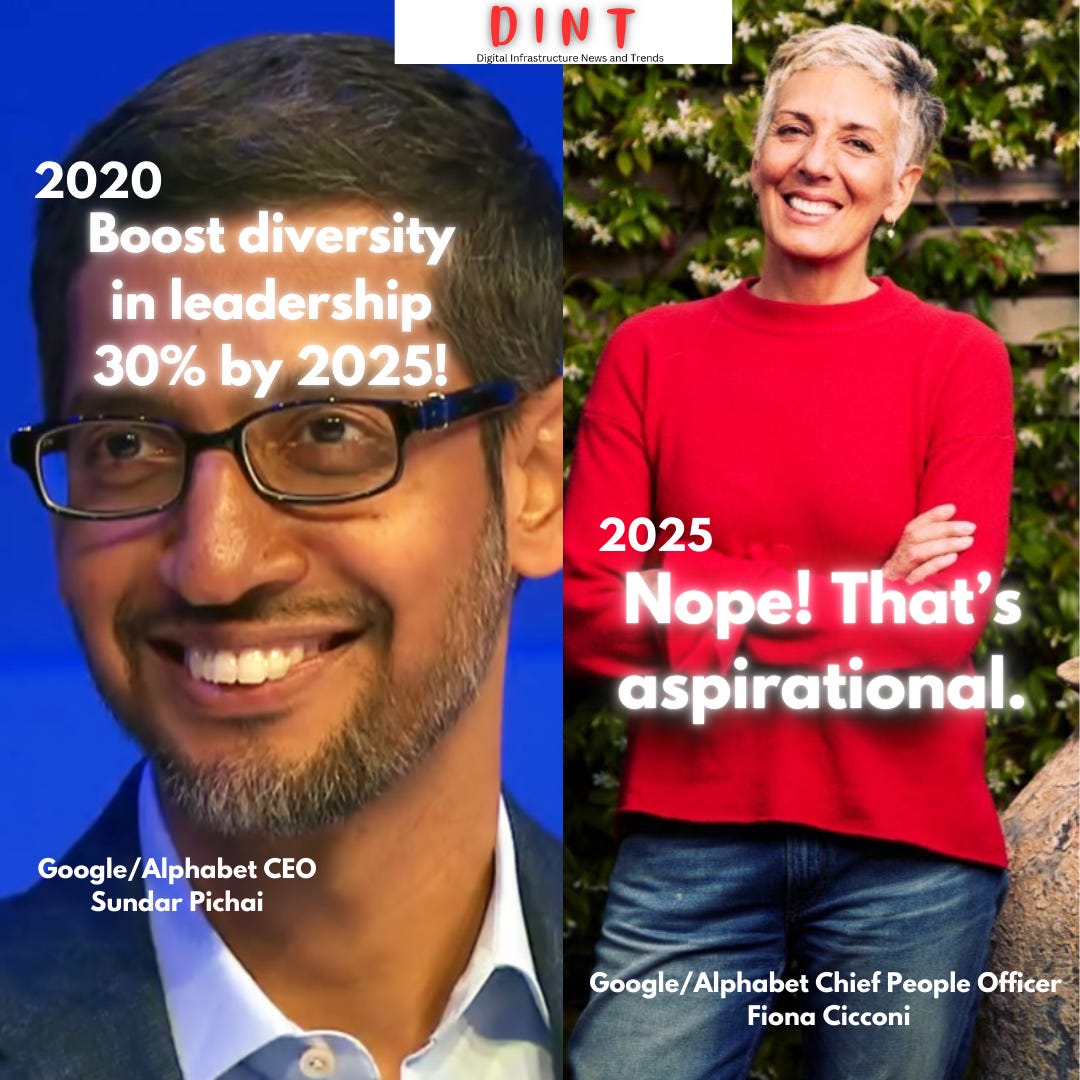This Week in Tech, Race, and Gender - DINT 141
A review of Google’s shameless 180 on its diversity goals
Tech diversity at a crossroads - no one can hide in this climate. It’s clear who’s dedicated and who’s faking dedication to diversifying workplaces
Out of the world’s top tech companies, only two remain committed to promises made during the post-George Floyd-murder era: Microsoft and Netflix.
You remember the world after May 2020.
Corporations tripped ov…



